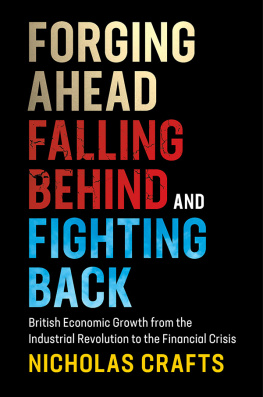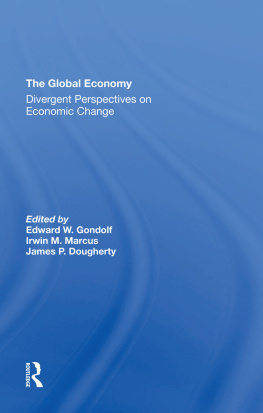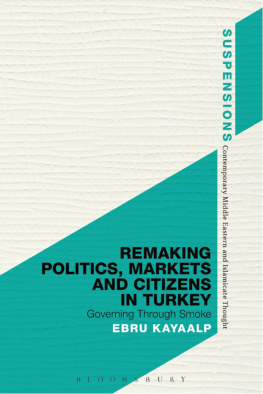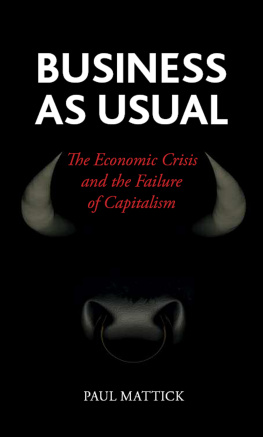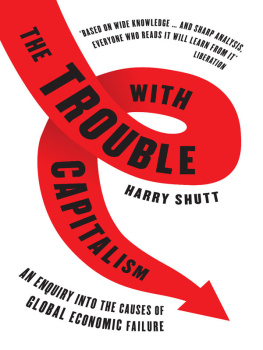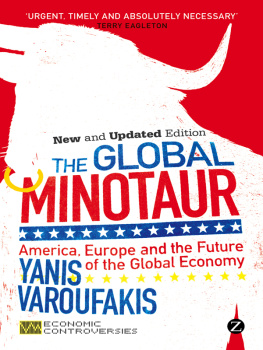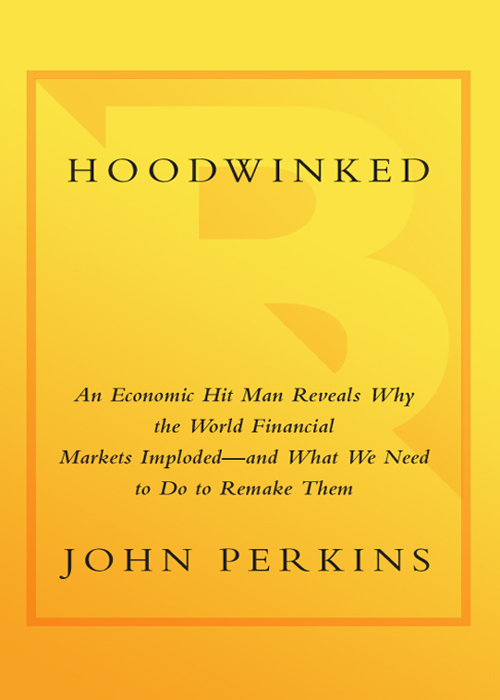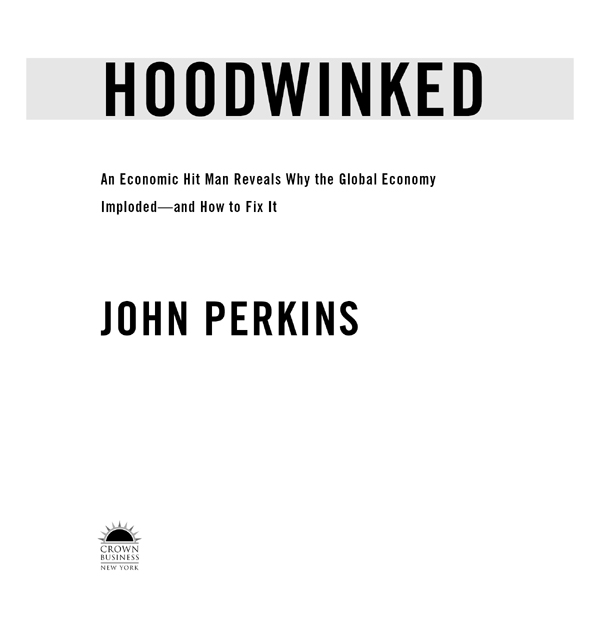Authors Note
The people and incidents described in this book are real. In a few cases I have changed names and minor details for the sake of anonymity or combined episodes and dialogues to facilitate the flow of the narrative.
Contents

Prelude
The world has changed a great deal since I wrote Hoodwinked in 2009. However, one thing has remained the same: The conclusions reached and the call for action made in the following pages are as relevant in 2011 as they were two years ago. I wish it were otherwise, but the dire predictions I offered in 2009 have come true. A mutant, viral, and extremely dangerous form of capitalism has thrived under the ever-increasing powers of Wall Street, Big Business, and a government that supports them (in other words, under the continuing reign of the corporatocracy).
The strategy for change delivered in this book is more urgent now than it was when I wrote it. The economic system advocated by Milton Friedman and the Chicago School of Economics in the 1970s, back when I was an economic hit man, has been embraced by every U.S. president and most of the other Developed Country leaders since. It has proven itself an abysmal failure. The fact that less than 5 percent of the worlds population lives in the United States and consumes more than 25 percent of its resources while about half the rest are either starving or threatened with starvation is a terrible indictment against this virus known as predatory capitalism. Rather than promoting democracy or stability, such a system is the seed-bed of violence and terrorism. It is not a model that can be replicated in Africa, India, or Latin Americano matter how hard they try. Nor is it the heritage any of us wishes to pass along to future generations.
The Introduction to this book describes a trip I took to Iceland in March 2009 and the economic collapse that country suffered as a result of exploitation at the hands of the corporatocracy. Since that trip, many nations have experienced similar calamities. Ireland, Greece and other countries in Europe, Asia, Africa, the Middle East, and Latin America, that until recently seemed to be headed toward new levels of prosperity, have fallen victim to this wave of predatory capitalism.
During much of my lifetime, elected officials wrote the laws in the United States. Now it has become painfully obvious that our most important laws are written by corporate lobbyists who finance the political campaigns of those officials. While polls show that the majority of Americans want to end the wars in Iraq and Afghanistan, raise corporate taxes, offer better education to their children, and guarantee health care for all citizens, our policy makers implement policies that accomplish the opposite, choosing to support Big Business rather than the average citizen.
When I began writing Hoodwinked, the White House was occupied by a conservative Republican. By the time the hardcover edition was published, a liberal Democrat had taken over. President Barack Obamas first term is now drawing to a close. And, as we all know, not much has changedat least not in the big picture of world events. What I stated in the following pages has become only too obvious: the President of the United States does not call the shots; the corporatocracy does. Whether his last name is Bush or Obama, his top advisors hail from Big Businessand they return to their corporate offices after theyve served their terms in Washington. Conflicts of interest are accepted as the norm these days.
Bin Laden is dead but the wars continue. Since 9/11 more than a trillion dollars has been spent and hundreds of thousands of people have been killed in conflicts involving U.S. forces. Yet, Iraq and Afghanistan are worse off than ever, the Middle East is torn by violence, and nearly one out of every six Americans lives in poverty. Meanwhile, Wall Street, the multination corporations, big banks, and oil companies continue to pile up record-breaking profits.
I discuss in this book the dramatic changes that have taken place since the late 1960s when my business school professors taught that CEOs had a responsibility to behave like good soldiersthey should dedicate themselves to the long-term interests of their companies, employees, customers, suppliers, and the communities where their businesses operate. Predatory capitalism ushered in a whole new breed of executives who (to quote ) transformed themselves from good soldiers into mercenaries. Unfortunately, that transformation has not just continued since 2009; it has escalated.
There has been a great deal of lip service paid to the need for change. Our elected officials talk about passing laws to control the excessive greed of CEOs, forcing corporations to pay their fair share in taxes, reducing the budget deficit, and taking care of veterans and others struggling with physical or emotional disorders. Unfortunately, their actions do not match their words. They attack the budget deficit by cutting back on education, health care, and other social services that would make the country a more efficient and compassionate place while defending massive military spending that enriches their friends at the tops of the corporate world and fuels the fires of hatred around the planet.
The fact that this system is predatory confronts us every day. This mornings paper informed me that the nations official unemployment rate just increased to 9.2 percent, 13.7 million people are counted as unemployed, and several states are taking steps to dismantle their unemployment insurance systems while at the same time cutting corporate taxes. The CEOs of the nations largest companies received giant pay increases in 2010, bringing the typical annual pay package for a head of a company in the S&P 500 to $9 million24 percent higher than a year before. Not just mercenaries anymore, they are bald-faced robber barons who do not seem even the least bit embarrassed to grow disgustingly rich at the expense of their employees, communities, environment, and the world they will pass on to their own progeny.
Like others who watched Wall Street take advantage of the demise of the Glass-Steagall Act and other regulations aimed at curbing the abuses that led to the Great Depression, in these pages I advocated a new set of rules to rein in irresponsible and corrupt executives. In response to the hue and cry, Congress passed the 2,300-page set of regulations known as the Dodd-Frank Wall Street Reform and Consumer Protection Act that President Obama signed into law in July 2010, and which included the creation of a Consumer Financial Protection Bureau (CFPB) inside the Federal Reserve. Even while the debates were raging, I could hear the ghostly voices of a couple of my business school professors echoing down through the decades as they warned about laws that lack the teeth of unbiased enforcement. Both Dodd-Frank and the CFPB rely largely on the very agencies that tolerated the corruption and excessively risky behaviors that caused all the problems. These agencies not only lack teeth, but also they are run by regulators who come from and return to the very industries they are supposed to regulate. The revolving door is extremely well oiled these days. It is no accident that, measured by their profits, the United States six largest financial institutions control 55 percent of all our bank assets.







